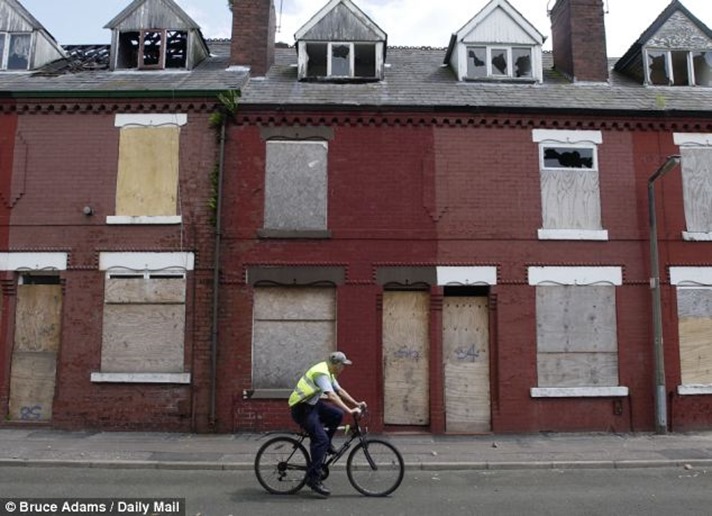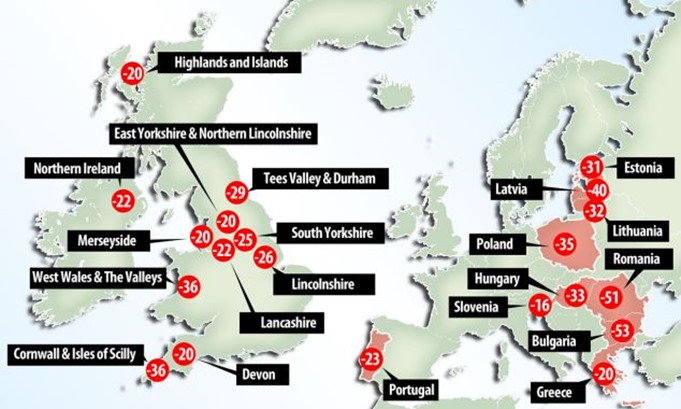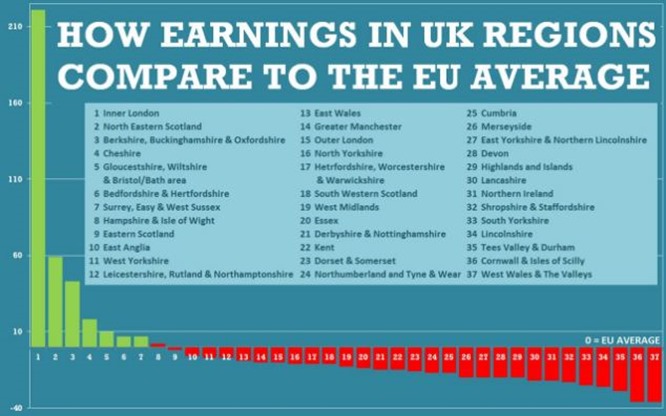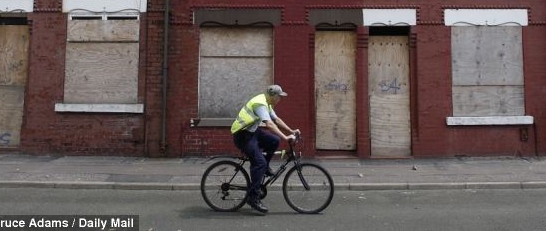Daily Mail
May 7, 2014

Parts of Britain are now poorer than Poland, Lithuania and Hungary, official figures reveal.
People in the Welsh Valleys and Cornwall – Britain’s two poorest areas – scrape by on less than £14,300 a year on average.
Because Britain is so expensive, this leaves families in these areas worse off than those vast swathes of Eastern Europe, according to an EU study.
In Lincolnshire and Durham, the next two poorest areas in Britain, people live on less than £16,500 a year.
This puts them in the same bracket as Estonians and rural Poles, once prices are taken into account.
Britain as a whole fares a little better, with average earnings of £23,300 – just over the EU average of £20,750. But this still leaves us out of the top 10 wealthiest countries in the EU.
And this figure is propped up by Europe’s runaway richest region – inner London. In the heart of the capital the average GDP per person is £71,000 a year.
This is 321 per cent of the average across the EU, according to Brussels’s official statistics arm Eurostat.
But central London’s soaring wealth has failed to trickle down to much of the rest of the country, the figures suggest.

Britain’s seven most hard-up areas – including Lancashire, Leicestershire, South Yorkshire and Staffordshire – are poorer than ANY region in Belgium, Denmark, Germany, Ireland, Finland, France, Luxembourg, the Netherlands, Sweden and Austria.
The region of “West Wales and the Valleys” is now in the top five poorest areas in Western Europe – with families HALF as wealthy as their German counterparts on average.
The only parts of Britain matching Germany for wealth – outside central London – are “Berkshire, Buckinghamshire & Oxfordshire” and oil-rich “North East Scotland” around Aberdeen.
But even England’s second wealthiest area – with average incomes of £32,000 – fails to make it into Europe’s top 20 rich league.
Only North East Scotland, with an average GDP per person of £33,000, sneaks into Europe’s Premier League of wealth.
Eurostat, which is Brussels’ equivalent of the Office for National Statistics, measures wealth across the EU using a measure known as ‘purchasing power standards’.
This aims to measure GDP per person but also ‘takes into account differences in national price levels’, to give a more realistic idea of how much the cash in people’s pockets is actually worth.
On this basis, four of the UK’s 37 regions struggle by on less than 75 per cent of the average EU earnings, alongside 15 in Poland, nine in Greece, seven in the Czech Republic and Romania, six in Hungary and five in Bulgaria and Italy.

